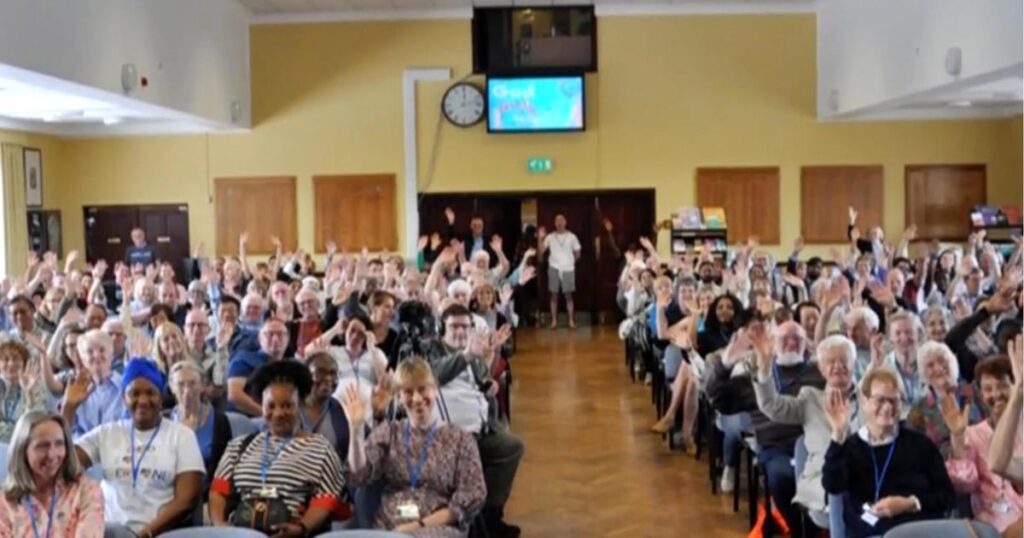Embracing Simplicity: The Inspiring Life of the Focolare Movement
In a world increasingly influenced by consumerism, the Focolare Movement stands out as a beacon of simplicity and unity. This lesser-known movement, affiliated with the Catholic Church, encourages its members to live a life of modesty and communal spirit, opting for family-style living instead of traditional marriages. Members commit to chastity, poverty, and obedience, emphasizing the importance of giving over possessing.
Exploring Focolare Lives
The latest segment of “The State of Spirituality with Lisa Ling” highlights the lives of single individuals devoted to the Focolare Movement. Their lifestyle revolves around generosity, showing how their commitment to unity shapes their daily actions.
Clarita Joung, a devoted member, speaks to the liberating quality of this way of life, stating, “You are free from your own attachments.” Joung resides in California with fellow members Loretta Rauschuber, Jonna De Guzman, and Regina De Jesus, who all share a common goal: “We aim for unity,” Joung expresses.
The Focolare Way of Life
Living without personal possessions, the women rely on essentials and often receive donated clothing. Their home is owned by the Focolare Movement, mirroring the humble lives of Jesus and Mary. Rauschuber summarizes their ethos: “Instead of a culture of having, we live a culture of giving.”
A Brief History of Focolare
Founded in the 1940s by Italian educator Chiara Lubich and recognized by the Catholic Church in the 1960s, the Focolare Movement now boasts over 100,000 members across more than 180 countries. While its roots are Catholic, the movement welcomes individuals from various faith backgrounds, including Islam, Hinduism, and Buddhism.
Focolare members assert that they are not part of a cult, and anyone is free to leave at any time. Rauschuber highlights the commitment involved in any lifestyle choice, noting, “In marriage, or any other vocation, there’s sacrifice,” adding that their choice may be radical, but it is chosen freely.
For these women, being a family means sharing unconditional love and support for one another. Joung articulates this beautifully, saying, “For us, being a family means to have this love for one another, to the point of being ready to die for one another, like Jesus did.”
Integrating with the Community
Unlike traditional clergy, Focolare members maintain regular jobs to support their lifestyle and contribute to those in need. Rauschuber explains, “It’s a choice we make,” emphasizing that their earnings help to sustain critical functions within the movement, such as keeping a house open for those affected by war in Syria.
Focolare’s Presence in Harlem
In Harlem, New York, CBS News features a group of men living in a Focolare house. Michael Morse, a recent resident, actively participates in shared responsibilities like cooking and cleaning. While raised Catholic, Morse found his calling within the Focolare community, drawn to their supportive presence and lifestyle choices.
“It’s a choice; I know that I won’t own my own house or car, but that gives me more freedom to dedicate myself to God’s work and humanity,” he reflects. With family roots in Focolare, Morse embraced this path in his 20s—even after experiencing relationships in school, his dedication to God took precedence.
Despite acknowledging the challenges of this lifestyle, Morse feels strengthened by both divine guidance and the community’s support. He envisions a lifelong commitment to Focolare, declaring, “This is my family. This is what I’m called to, and I’m in it for the long haul.”


